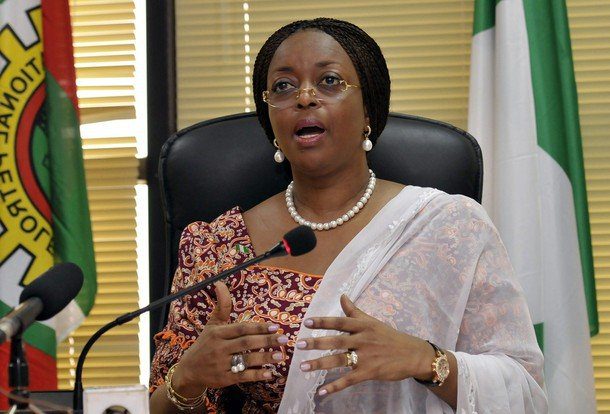
Consulting company Control Risks has identified political uncertainty and low oil prices as key issues posing threats to Nigeria’s economic growth, in the company’s annual RiskMap 2015 report published today
“Nigeria’s debt situation will remain vulnerable to any unexpected large drop in oil prices or other macroeconomic shocks to the economy; this could lead to a renewed debt distress.
“This factor will continue to weigh on the country’s sovereign credit rating. Amid this and other factors, Nigeria’s sovereign foreign currency long-term credit ratings remain below investment grade, albeit with a stable outlook.”
But it noted that the outlook for Nigeria’s ratings compared more favourably than that of South Africa, which has a negative outlook.
“Amid growing efforts to reduce external financing risk, the federal government’s domestic debt has emerged as the bigger share of total debt, reflecting increased efforts by the federal government to finance a larger proportion of its deficit from the domestic capital market rather than from international creditors.
“Federal government’s domestic debt has risen from $10.4 billion (11.7 per cent of GDP) in 2004 to $43.4 billion (16.6 per cent of GDP) in 2012. The stock of domestic debt is likely to remain much higher than external debt, although the government’s recent effort to exercise fiscal prudence should see domestic borrowing fall, remaining well below the federal government’s target of 30 per cent of GDP.
“Already, growth in domestic debt has slowed to 21.7 per cent, down from 40 per cent in 2010. However, despite the downward trajectory in domestic debt, debt-servicing costs remain high (amounting to $4.4 billion; nearly two per cent of GDP in 2012), reducing the fiscal space for investment in otherwise core areas of priority,” it added.
Revenue Hit by Oil Theft
Nigeria’s mounting debts aside, the country’s economy has been made more vulnerable to macroeconomic shocks by a fall in revenue as a result of crude oil theft in the Niger Delta estimated at 400,000 barrels a day.
In its bi-monthly Economic and Business Update of July 24, Financial Derivatives Company (FDC), an economic and investment consultancy in Lagos, showed that Nigeria’s crude output has continued on its downward trend.
Quoting the Organisation of Petroleum Exporting Countries (OPEC), the FDC report indicated that Nigeria’s oil exports declined to 1.86mbpd in June, from 1.9mbpd in May and 1.92mbpd in April 2013. The steady decline could be attributed to incessant theft and pipeline vandalism alongside multiple enactments of force majeure.
“Nigeria gets 78 per cent of its fiscal revenue from oil receipts. Shrinking oil output and soft prices create the risk of a government revenue shortfall.
“In addition, and due to falling oil receipts, foreign exchange inflows have been on a decline: a 4.4 per cent decline from the preceding month to $3.1bn in May. A reduction in foreign exchange inflow will affect external reserves, which are already on a decline due to their increased use to support the naira value,” said FDC.
To buttress this point, a review of foreign reserves accretion from the beginning of the year showed that reserves which had climbed from $44.3 billion to almost $49 billion between April and May this year, had fallen to a little over $47 billion on August 1 (See Table 1).
In the same vein, savings in the Excess Crude Account (ECA) have also been hit by rising oil theft, as the ECA which stood at $9.24 billion in January this year had plunged to $6.2 billion in May and $5.8 billion in June.
“This implies that 20 per cent of Nigeria’s revenue is being lost to crude oil theft. But it does not just stop at that, because the people who are stealing the crude oil have to sell it at a discounted price in the black market, so as long as they do not get full value and it cannot be invested in the national economy, it also amounts to a drop in our Net National Income (NNI),” Rewane said.
He added that a third danger is that the proceeds from crude oil theft could end up in the hands of Nigeria’s enemies. “It poses a national security risk because the proceeds could be used to buy arms and ammunition by enemies of the state, which could be used to fight and terrorise Nigerians,” he warned.
He however added that the drop in revenue may not impact on Nigeria’s ability to meet its obligations, stating, “Our foreign reserves are still enough to cover 10 months of imports. The worst case scenario is the federal government could resort to printing money to meet its obligations. But the impact will be inflationary and could lead to the devaluation of the naira.”
FRENCH VERSION

“Situation de la dette du Nigéria restera vulnérable à toute chuteinattendue des prix du pétrole ou autres chocsmacroéconomiques pour l’économie ; Cela pourrait conduire àun regain de surendettement.
“Ce facteur continuera à peser sur la notation souveraine du pays. Au milieu de cela et d’autres facteurs, cotes de crédit à long terme du Nigéria devise étrangère souveraine demeurent sous leniveau de l’investissement, mais avec une perspective stable. »
Mais il a noté que les perspectives pour les cotes du Nigériacomparativement plus favorable que celle de l’Afrique du Sud,qui a une perspective négative.
« Dette intérieure du gouvernement fédéral est passé de $ 10,4milliards (11,7 % du PIB) en 2004 à $ 43,4 milliards (16,6 % duPIB) en 2012. L’encours de la dette intérieure est susceptible derester beaucoup plus élevé que la dette extérieure, bien que lesefforts récents du gouvernement d’exercer la prudencebudgétaire devraient voir emprunt national tomber, reste bien endeçà objectif du gouvernement fédéral de 30 pour cent du PIB.
Revenu touché par le vol de pétrole
Dettes de montage du Nigéria à l’annulation, l’économie du paysa été déposée plus vulnérables aux chocs macroéconomiques parune baisse du revenu par suite de vol de pétrole brut dans leDelta du Niger a estimé à 400 000 barils par jour.


